Grounded in whites and neutrals, farmhouse decor typically favors no-fuss palettes with muted hues. But that doesn't mean the style is void of color. In fact, a fresh, modern interpretation of farmhouse style leaves plenty of possibilities for thoughtful, well-edited color.
Start by determining if floors, countertops, tiles, and other permanent finishes are warm (cream, yellow, red undertones) or cool (gray, blue, green undertones). It's natural to let that color temperature drive your overall scheme. If your personal preference contradicts that direction, though, never fear! Go ahead and listen to your heart. You can also carefully blend color temperatures to keep a space from feeling too warm or cold. And if you're looking for the perfect balance between gray and beige, greige hues are game-changing tones that play well with any palette. Use these fool-proof ideas to choose farmhouse paint colors for every room.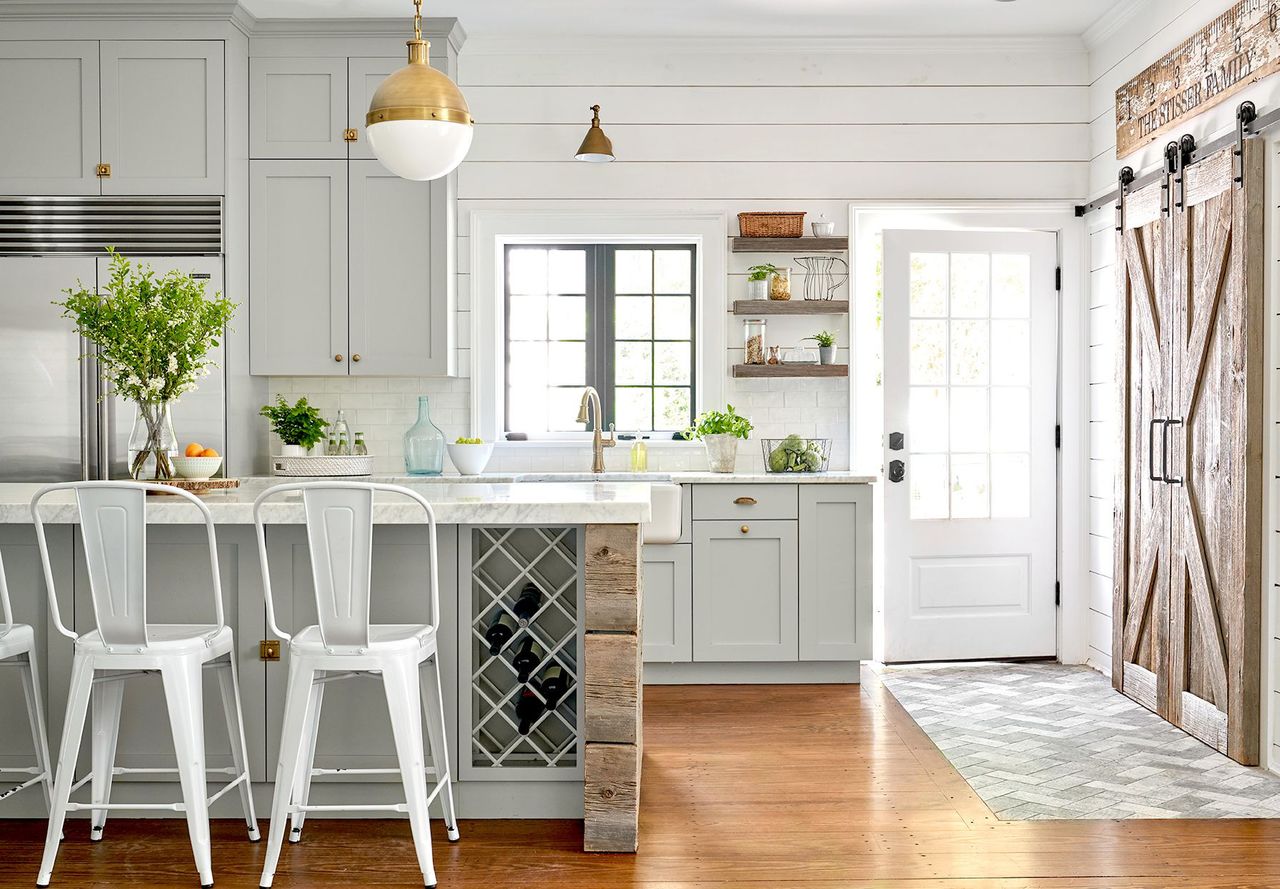
Farmhouse Kitchen Paint Colors
More than any other room in the house, the kitchen is probably most recognized for popularizing farmhouse charm. Rooted in practicality, farmhouse kitchens balance form and function to create hardworking yet visually pleasing spaces. Demanding much of a construction or remodeling budget, the kitchen is a space you want to get right the first time and then let it drive your home's overall decorating style.
Think beyond go-to white farmhouse cabinetry and consider painted cabinets and accent furniture paired with plenty of white and wood tones. This foolproof combo has timeless appeal and lets you incorporate as much or as little color as you choose.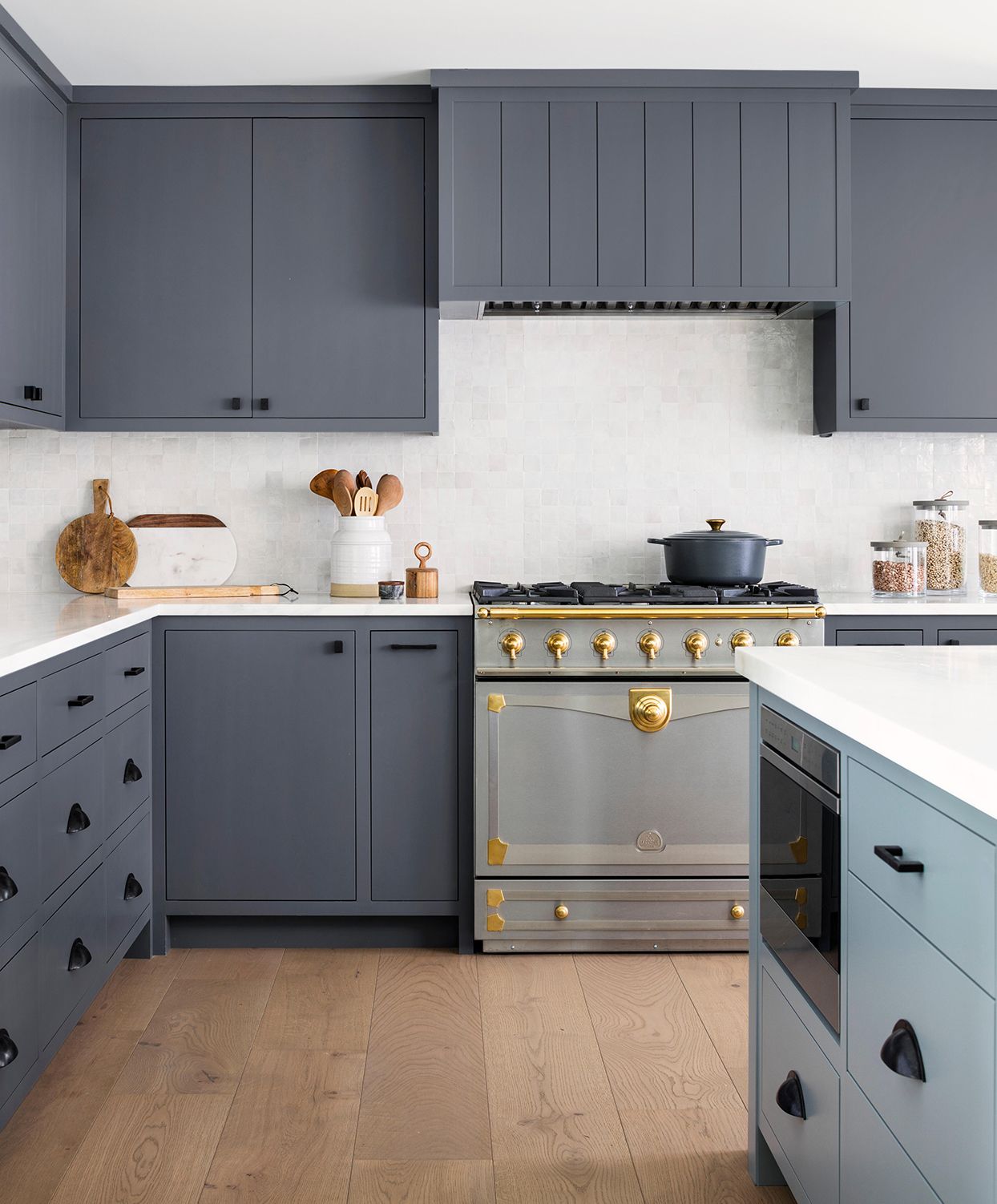
In this farmhouse kitchen, cool gray-blue cabinets are grounded by white walls and countertops, and they pair well with stainless-steel appliances. Although cool tones have dominated farmhouse spaces recently, there's a shift toward earthier palettes-think warmer mushroom hues. Consider painting upper and lower cabinets different colors and keep accent hues minimal or nonexistent. Subtle yet effective, painting the island a shade or two lighter than the other cabinets calls attention to the gathering spot and offers more dimension to the room.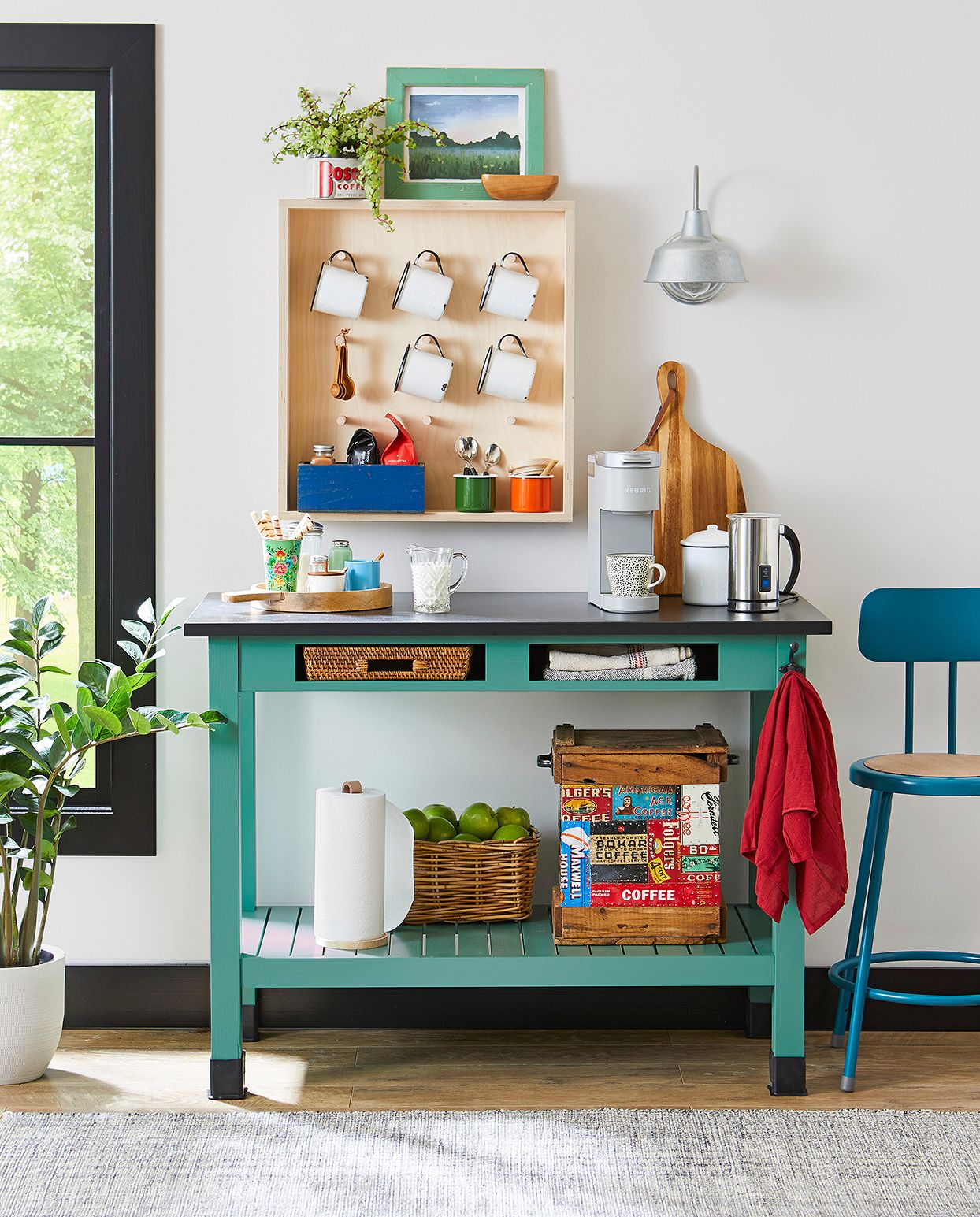
Pops of color, though, are far from out of the question. Reminiscent of Depression-era feed sacks, this green hue gives style-defining status to a painted table. Bright white walls make the perfect base to showcase the practical piece, which was upgraded with a handy DIY shelf.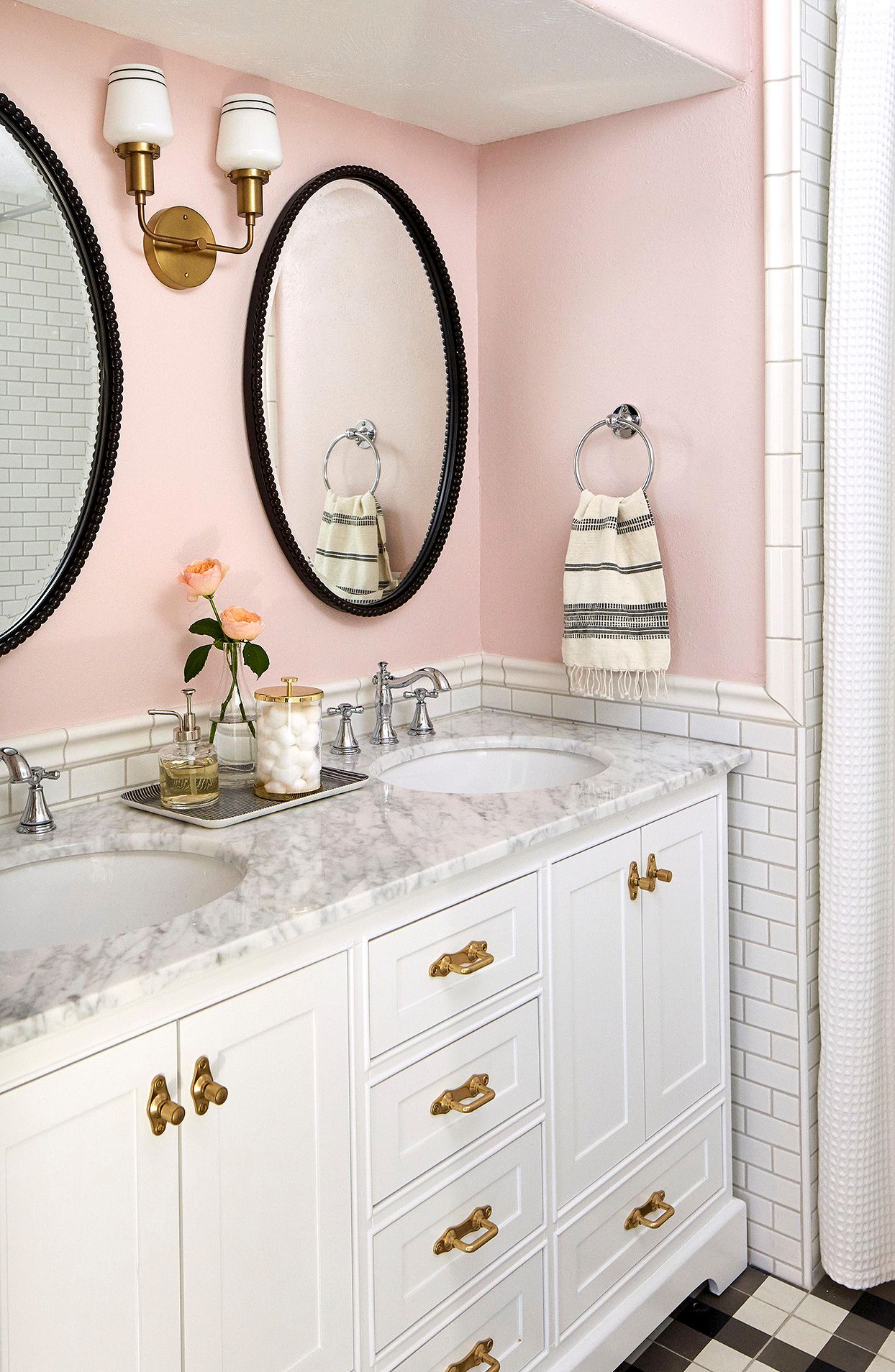
Farmhouse Bathroom Paint Colors
From master en suites to petite powder rooms, farmhouse bathrooms make the most of modest footprints. Straightforward but far from stale, these spaces flaunt crisp, clean finishes grounded in white and layered with a dose of delightful color or pattern. Ticking stripes, charming checks, and modern florals as accents or the main attraction can set the stage for trademark farmhouse design.
In this farmhouse bathroom, black-and-white floor tiles offer a brave plaid pattern underfoot and are a refreshing alternative to traditional hex or penny tiles. Delicate pink walls sweeten the space and set off the contrasting black-framed mirrors. Touches of brass complement the clever combination without overdoing it.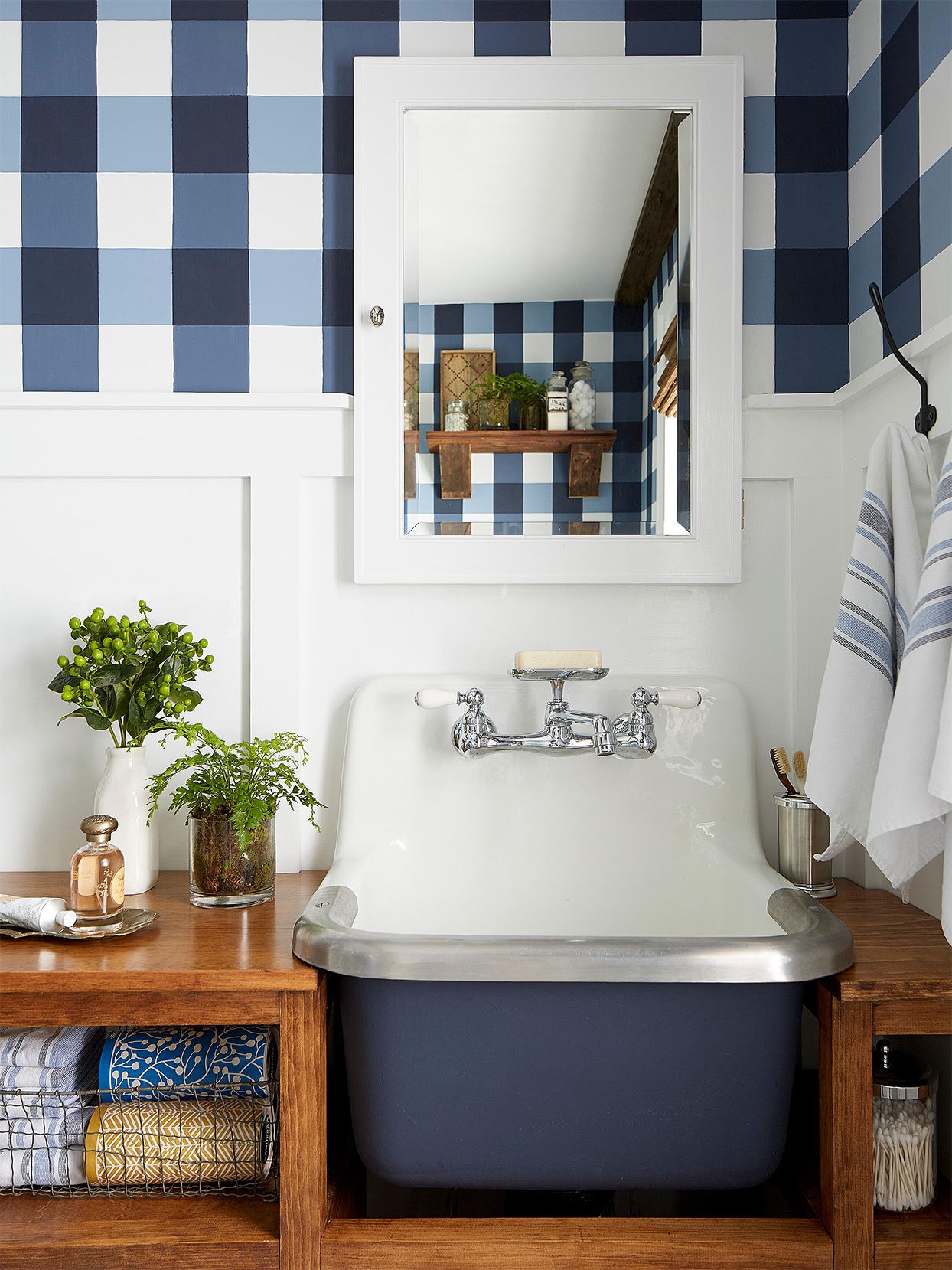
Dressed in all-American navy and white, this tiny bath flaunts big style. Hand-painted using Benjamin Moore Decorator's White and three shades of Hale Navy, the show-stopping buffalo plaid is so captivating, it's hard to look away. Thanks to the visual rest offered by bright white wainscot, the contemporary take on this classic pattern works wonderfully. With a semigloss paint sheen, this board-and-batten wainscot is durable, cleans up easily, and is a nice contrast to the matte finish on the wall above. Committing to colorful design takes confidence, but if you tire of a daring treatment, you can simply grab a can of paint and a roller and start fresh.
A reclaimed sink blends with the wainscoting. An icon of farmhouse style, this treasure repeats the navy hue on the exposed basin exterior and reveals a hint of metal on the rim to add an industrial touch. To warm up signature white farmhouse bathrooms, you can't go wrong with natural wood furnishings and accents. From deep walnut to driftwood, wood stains in multiple hues can mimic authentic farmhouse finds. Fashioned from pine boards and walnut stain, the handcrafted vanity is proof you don't have to live on a farm to get a farm-fresh look.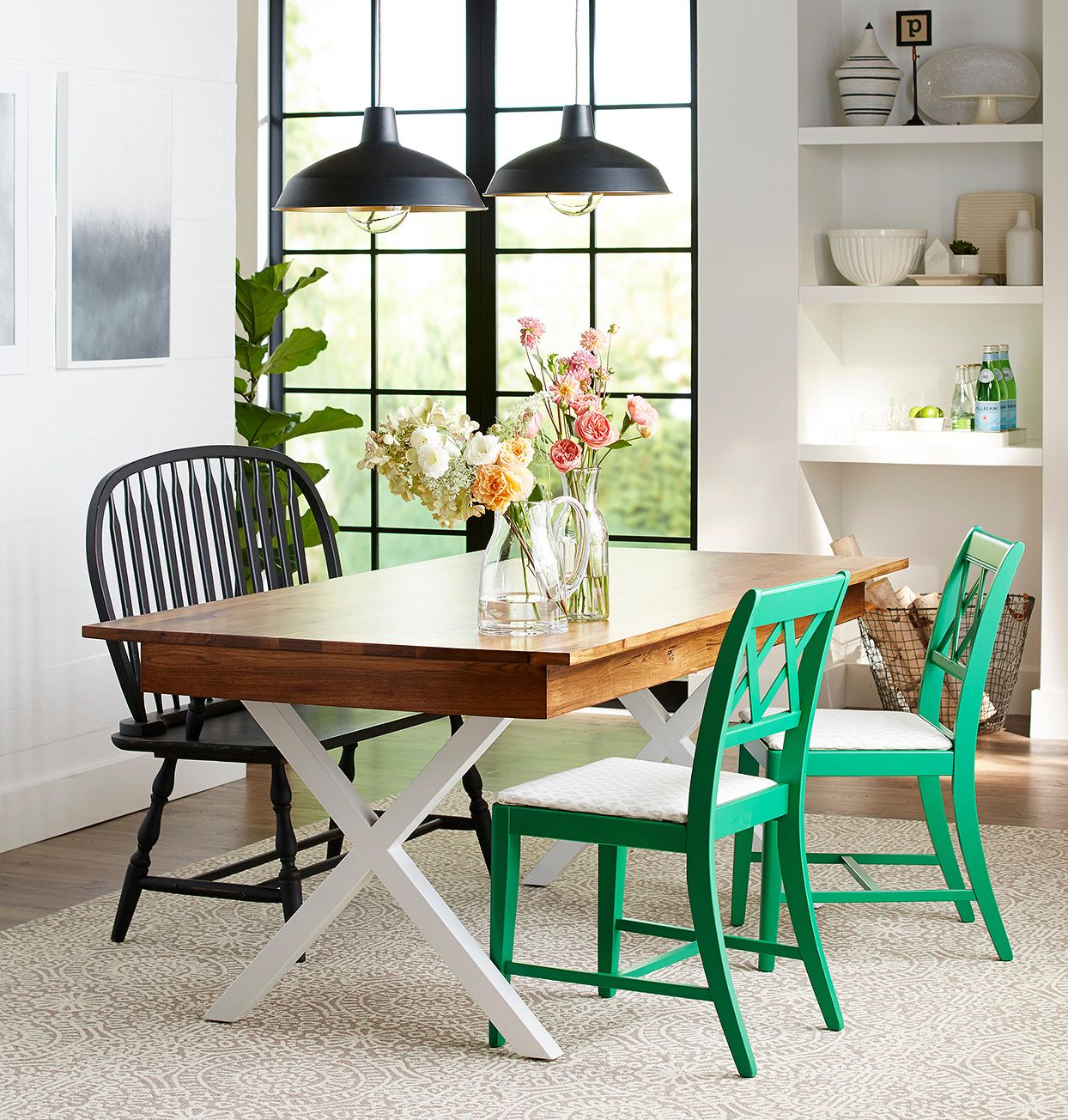
Farmhouse Paint Colors for Living and Dining Rooms
Whether applied sparingly or coated floor to ceiling, color can be instrumental in defining farmhouse spaces. Taking inspiration from the great outdoors, greens, blues, and plenty of earth tones create inviting rooms to settle into for hours. Chairs dressed in vibrant spring green grab attention in the otherwise neutral dining room. Black accents such as the window trim and Windsor bench are runners-up visually but play a critical role in rounding out this impactful palette. To achieve a collected-over-time look, use a single spark of color such as Benjamin Moore 2038-20 Irish Clover alongside a predictable neutral palette to punctuate a mix of finishes and furniture styles.
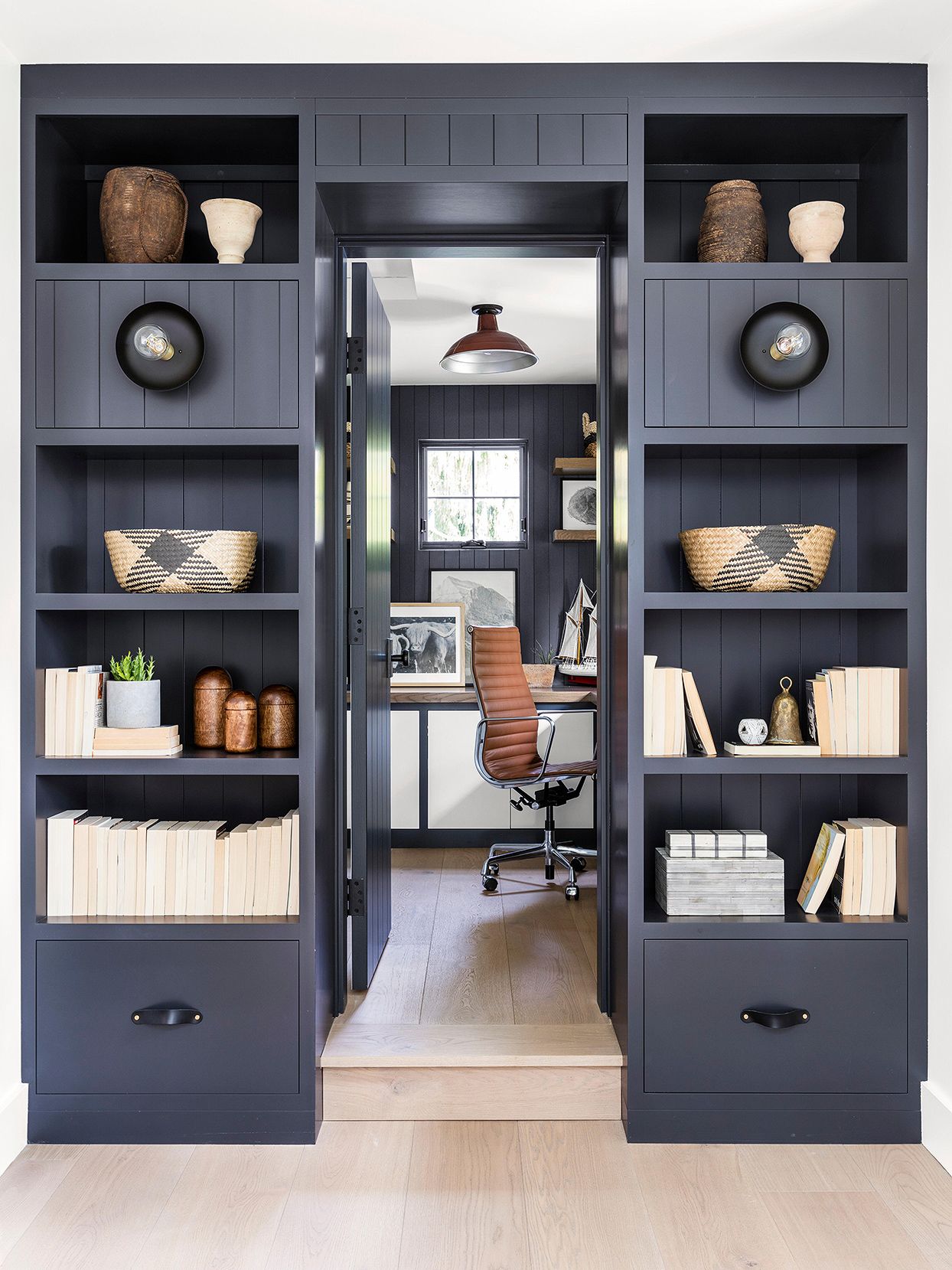
Whether working with light or dark hues, always test several samples in your room before committing to a color and buying gallons of paint. It also helps to know a color's light reflective value. Typically found on the back of the paint chip, this value helps predict how much light will bounce off the paint and back into the room. On the 0–100 scale, lower-value colors, as on charcoal cabinets or deep green walls, absorb more light and create a cozy, moody atmosphere. Although they aren't hallmarks of farmhouse homes, don't discount dark, dramatic hues. When there's an abundance of natural light in a room, saturated color can dominate walls or sections of built-ins without feeling gloomy.
When choosing colors-especially those tricky grays-look at a variety of paint chips side by side on a white ground in the room to be painted. Eliminate those with displeasing undertones, then paint promising colors on 2-foot-square sample sheets to hang on walls and hold up to upholstery, flooring, and other finishes.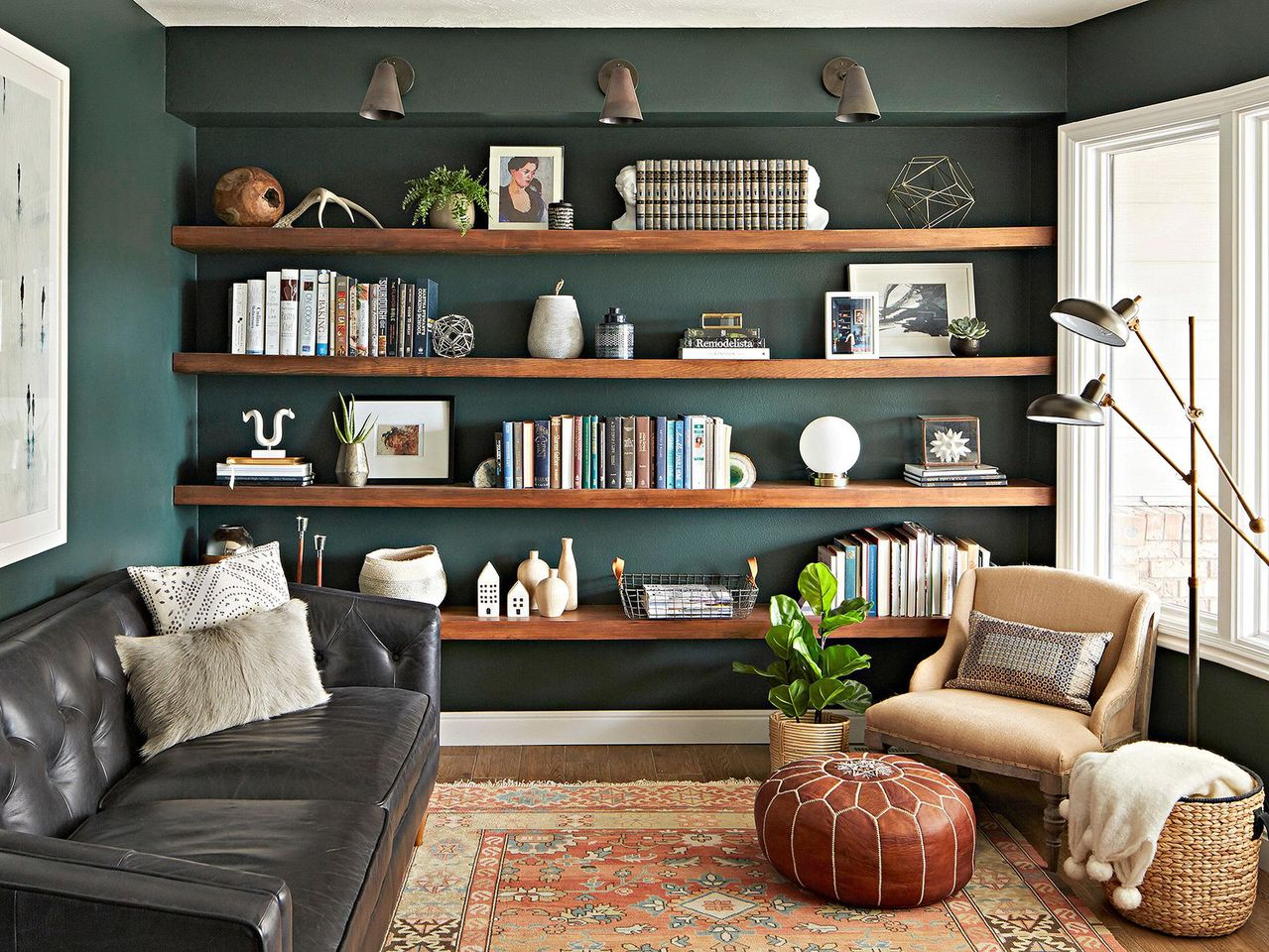
A deep mossy hue bridges modern farmhouse and midcentury style for an eccentric vibe. The forest-like foundation embraces warm, natural hues and textures in the leather furniture, woven rugs, and baskets. Forgo shiplap and fill walls instead with wood shelving, putting plenty of personality on display through thoughtfully placed collections and accessories.



![A Tranquil Jungle House That Incorporates Japanese Ethos [Video]](https://asean2.ainewslabs.com/images/22/08/b-2ennetkmmnn_t.jpg)









